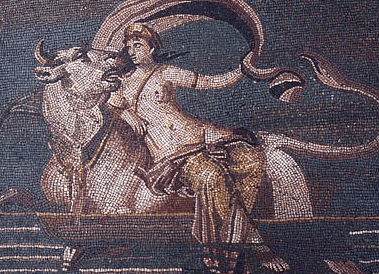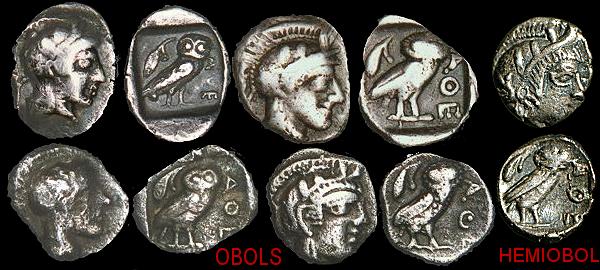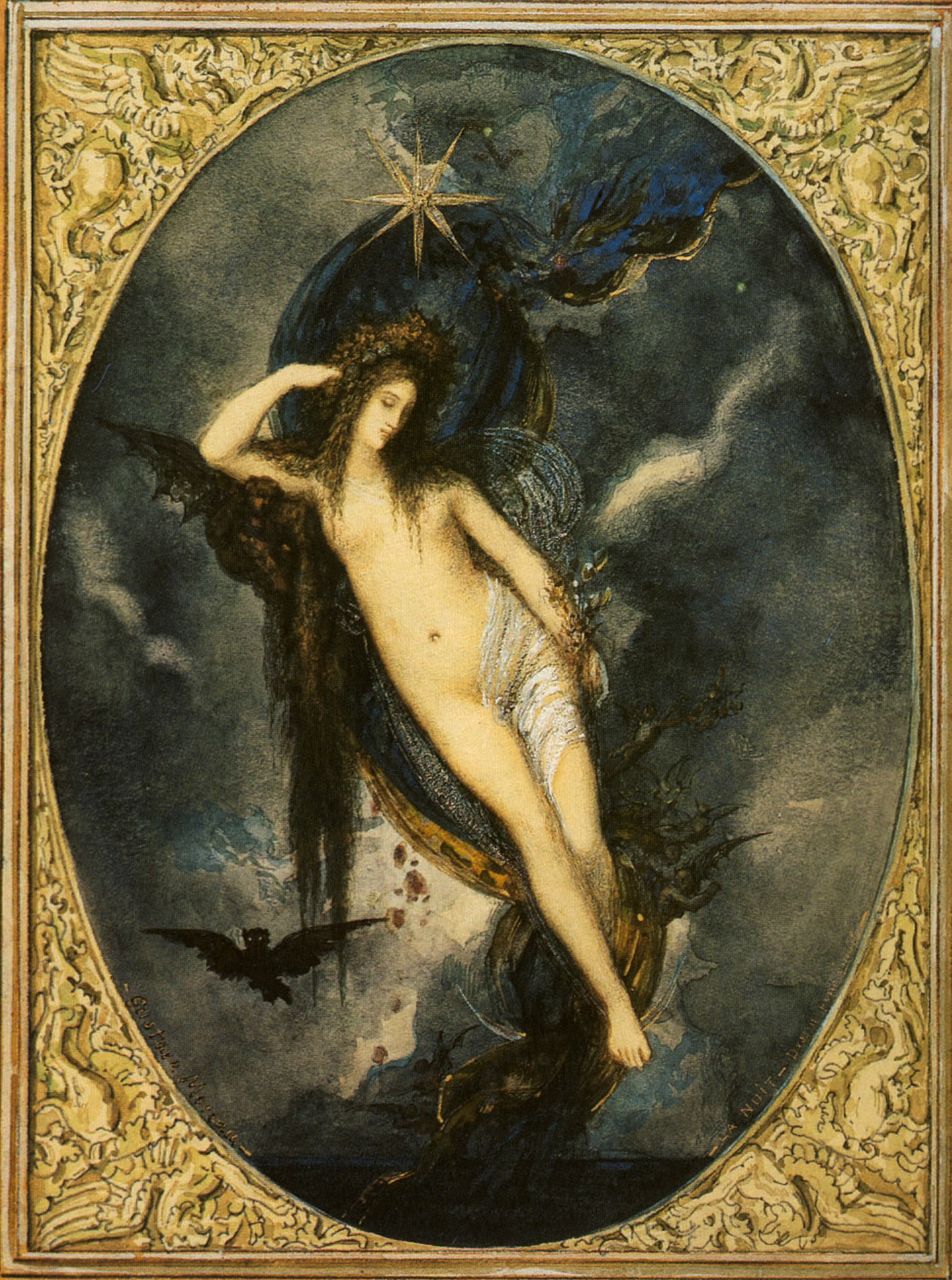
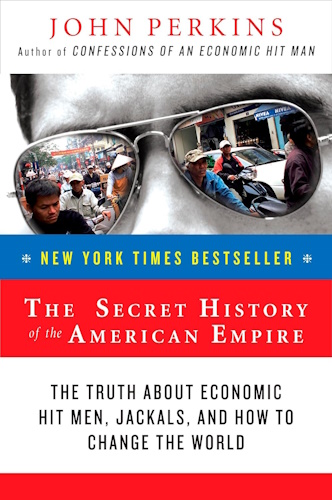

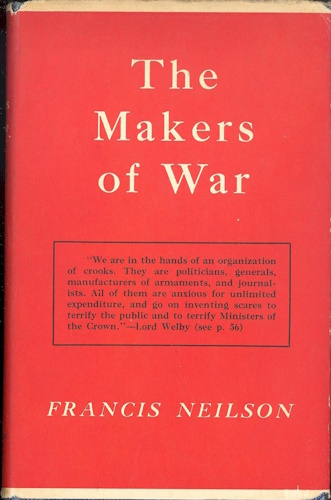

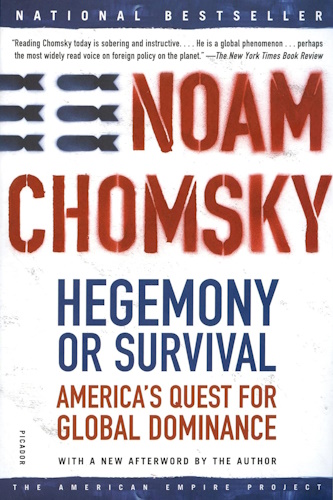



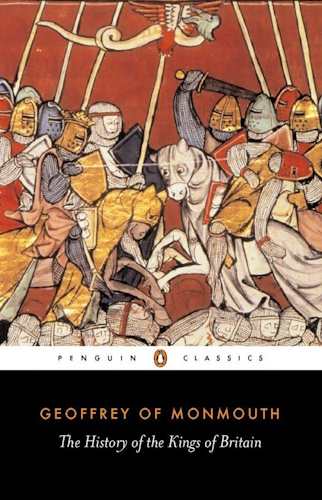

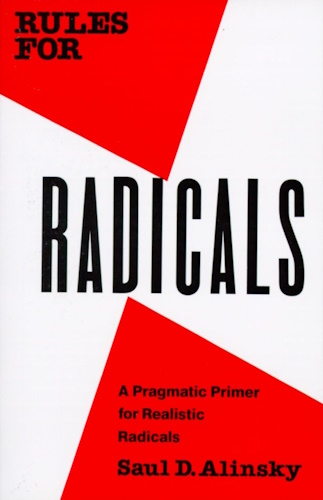

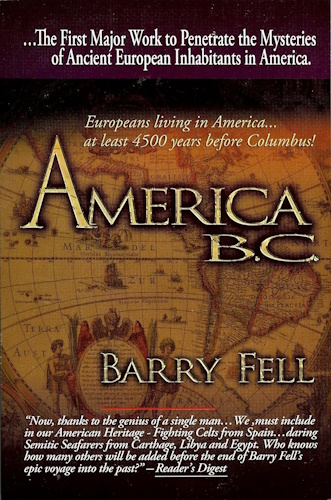

Whence & Pence
A Series
by
Douglas V. Gnazzo
January 6, 2005 - April 18, 2005
(Retrieved from archive.org)
![]()
Part 8: The Gounding
March 15, 2005
"For there is nothing hid, except to be made manifest,
nor is anything secret, except to come to light."
SUMMARY TO DATE
The Revolutionary War was ended with the Paris Peace Treaty
The Colonists were subjects of the King of England who was their Sovereign
The King of England granted Charters to the first Colonists to come to America
The Holy Roman Emperor was crowned or ordained by the Pope in Rome
The King of England was also The Holy Roman Emperor as the Paris Treaty states
The King of England conceded all of England to the Pope in the Concession of 1213
In 1095 Pope Urban II sounded a call to arms to begin the First Crusade
The early days of America saw the formation of freemasonry and other occult orders
The Templar Knight's execution by Philip and the Church was despicable and horrific
Rome was the money center of the world which then migrated to England
The Privy Council, Star Chamber, and the War Powers Act appear to be kin
The fall of Rome caused a migration of people that came to Europe and formed nations
The Rule of Law appears to have been sired by several related Sires
One half of one percent of the world's population own 95% of everything
The lineages of many of the Royal Houses are intertwined as if a Gordian Knot
The Monetary System of Paper Fiat Money = Debt is a Wealth Transference system that has Caused an Unequal Accumulation of Wealth by the Few at the Loss of the Many
THE SOWING OF SEED
when you yourself are fated to become
a spectacle, a serpent well worth seeing?
And for a long time, faint and colorless,
he stood there, trembling with icy fear,
his hair erect. But look: his patroness
glides down from heaven and stands by his side:
Pallas Athena, who now bids him sow
the agitated earth with the viper's teeth,
seed of a race to come. Obeying her,
he opens furrows with a plow, then sprinkles
that mortal seed of teeth into the ground.
[Ovid]
CADMUS AND THEBES
Cadmus, in vain you travel round and round ... You seek a bull which no cow ever calved; you seek a bull which no mortal knows how to find ... Europa's bridegroom no drover knows how to drive ... he is ordered by no whip...he strains his neck for Love alone ..." [The Pythian priestess to Cadmus. Nonnos, Dionysiaca 4.293]
Zeus was enthralled with Europa's beauty, watching her daily pick flowers in a certain meadow. He soon fell victim to the want of desire, and was smitten by Cupid's art, falling in love with his desire for Europa. Zeus could not appear directly to her, as his godly stature would be more than she could bare; so he devised a plan to charm and entice her pure heart by playing on the trust of her incorruptible naive ness as an artful musician sounds notes upon a reed.
Zeus turned himself into a white bull, befitting of the quest at hand. Every day Europa came closer and closer to the powerful beast, until at last she would trustingly pet the huge animal. Then one day Zeus lured her into climbing upon his back. As soon as Europa had mounted the beast, Zeus crossed the meadow and entered the adjacent waters of the sea, quickly swimming to the nearby island of Crete that lay offshore. His plan had worked – Europa was his.
The father of Europa is said by most to be by birth an Egyptian named Agenor, who had left his native country and traveled to Phoenicia, where he reigned as King. Legend records that Agenor was the son of Poseidon and Libya, although there is also a version that speaks of a King Belus involved in the mix. Either way, Europa is descended from Io; Io being one of the Three Main Ancestors from which almost every Royal House is descended. The Three Main Ancestors are: Io, Atlas, and Deucalion.
Upon hearing of the taking of his daughter, King Agenor ordered his sons to find Europa, and to not return home until they found her. Cadmus was one of his sons, brother to Europa. Cadmus searched relentlessly, but in vain; he could not find his sister, whereupon he went to the Delphic Oracle to inquire about her. Some say that Iasion had taught Cadmus the ancient ways.
The Oracle spoke in words steeped in hidden verse, and Cadmus was told that during his search he would encounter a cow, which he was to follow; and that he was to found a new city, wherever the beast lay down to rest, which so happened to be the site of the city of Thebes, at first called Cadmea, after Cadmus, its first King.
After the founding of Cadmea, later called Thebes, Cadmus ordered some of his men to draw water from a nearby spring, which belonged to Ares, and was guarded by a ferocious dragon that the God of War had placed there. Some say the dragon was born from Ares seed – the God of bloodlust and violence, hated by both men and Gods, he that had fathered Deimos and Phobus – the siblings known as Fear and Terror, oft times accompanied by envy, discord, and strife – lineal lines of connecting descent.
"Most hateful to me are you of all gods on Olympus,
for ever is strife dear to you and wars and fightings."
[Zeus to Ares. Homer, Iliad 5.890]
Cadmus waited upon his men, not knowing the cause of their tardiness, for the dragon had slain them all and gorged upon their bodies. Cadmus searched for his men and encountered the dragon, to which he gave battle. The loathsome creature was a powerful beast that shown fire from his eyes, and poison from his triple tongue, and tripled rows of fangs with which to tear his prey asunder. The monster was enormous, the thrashing of his huge tail unleashed deadly blows that could cut down trees. Cadmus remained undaunted – and stood his ground.
his wounded back, then bites down on the shaft,
and with great effort barely manages
to tear it loose, although the tip stays in,
adding new fuel to the well-banked ire
of customary rage: the veins throb in his throat,
his gapping horrid jaws are flecked with foam;
buffed by his scales, the bare earth resonates,
and his infernal breath infects the air.
The wound is light though, since he keeps retreating,
moving his injured neck back from the spear,
yielding more ground, while he prevents the hero
from working on that wound. Relentlessly
Cadmus engages him, maneuvering
until he gets him right before an oak,
then thrusts and pins the monster to the tree,
which now bends in the middle from his weight,
and groans in bass, lashed by the serpent's own tail"
[Ovid]
Cadmus was the victor, winning the battle and the day – for he had slain the evil dragon, a vile and gruesome creature from the depths of the lower regions.
Next the Goddess Athena appeared to Cadmus and admonished him not to fear, but to prepare the soil to accept the teeth of the unholy creature, as seed of a new race of men that would spring from the ground and were thus called Sparti.
As soon as they rose from out of the ground they gave battle to one another, killing each other with bloodlust from the beginning of their being, as they were from the seed of the dragon teeth. Five of the Sparti are said to have survived that cursed day, one such surviving warrior became the famed Theban commander Epaminondas, who in life defeated the Spartan army in the year 362 BC.
"And Agenor's son Cadmus, sowed the teeth on the Aonian
plains and founded an earthborn people…"
[Apollonius Rhodius]
On Epaminondas' tomb some say, stood a pillar, and on it a shield with a dragon, the symbol of the Sparti. Cadmus and his wife were turned into serpents near the end of their lives; fulfilling the fate the Goddess Athena had prophesized.
RHYME OR REASON
Are the above legends true or are they the imaginations of a master storyteller? Is it possible they are figuratively true, but literally not true, or might both interpretations be correct – or false?
And from whence comes imagination? What is the stuff that dreams are made of, and life and death as well?
From whence did all come forth and whither does it go? Perhaps it goes nowhere, as there is nowhere to go; and the going is but a fleeting dream or illusion – not real. Perhaps that which changes never Is, and that which Is – never changes.
Answers to such questions do not lend themselves to be deciphered by the art of mere intellect. Some of the greatest minds have spoken of myths, dreams, the collective unconscious, the arts, archetypes, allegories and symbolism. Are these the province of the mind, the heart, the soul, thought or understanding?
Is thinking the same as thought? Can thinking be done without creating thoughts? Is to think something is true or correct, the same as knowledge? Is knowledge the same as Wisdom? What is contemplation? What is understanding?
Can science – the study of nature: be it biology, anthology, psychology, philosophy, cosmology or anthropology – any and all that can be spoken or imagined, provide definitive answers in regards to man's being? What if the essence of man is beyond nature and nature only exists for man to have incarnate experience? Is there rhyme and reason? – Or perhaps as it has been said:
"Please assume ... that there is in our souls a block of wax, in one case larger, in another smaller, in one case the wax is purer, in another more impure and harder, in some cases softer, and in some of proper quality...Let us, then, say that this is the gift of Memory, the mother of the Muses. And that whenever we wish to remember anything we see or hear or think of in our own minds, we hold this wax under the perceptions and thoughts and imprint then upon it, just as we make impressions from seal rings; and whatever is imprinted we remember and know as long as its image lasts, but whatever is rubbed out or cannot be imprinted we forget and do not know."
[Socrates to Theaetetus. Plato, Theaetetus 191d]
The western world considers Carl Jung to have coined the concepts of archetypes and the collective unconscious. Joseph Campbell contributed immensely as well, especially in regards to mythology. A simple explanation of what Jung meant by the collective unconscious is a psychic reservoir of the most often experienced and shared experiences within human nature that all individuals share and draw basic or primordial ideas and ideals from. Archetypes are recurring personalities or traits, especially as expressed in myths and legends, which Campbell elaborated on – as expressed by heroes, myths, and a host of other characters.
However, the concept of the collective unconscious and archetypes has existed long ago, from the dawn of man, and can be found in the I Ching, the Upanishads, Vedas, and other ancient works. Plato's dialogue above is essentially explaining part of a similar process of the collective unconscious and archetypes, although perhaps a bit closer to how it actually occurs.
And from whence the golden-robed Goddess Mnemosyne? Memory denotes a note to be remembered, the object a subject; both in turn denote time and space. Are "we" simply the sum total of our experiences? The word "persona" means mask or that which hides – hides what? Perhaps closer to Truth is:
"The Peace that Passeth Understanding"
WHO CARES
So who cares if the myths are true or not; what good will it do to know about Cadmus or dragons and other like subjects, such as the "seemingly" unrelated coincidences witnessed throughout history and herein espoused. Who cares if the Gordian Knot can be untied – it probably doesn't even exist. Who has time to think about the collective unconscious when the bill collector is knocking at the door?
Most of us are too busy just trying to put food on the table and a roof over our heads to care about such nonsense. But therein lies the rub; perhaps it is just because of such seemingly unrelated coincidences that has caused the providing of a living for one's family to become the struggle and burden it now is, requiring both parents to work to make ends meet – and for many it is an almost impossible task.
Perhaps instead of being taught how to make a living, we should be taught how to live. Why is so much emphasis put on earning money? If earning money is the prime motivation of society, then they who are in the money business have quite an advantage over all the rest of us.
Perhaps what is missing from government is a basic philosophy that grounds and centers the government for a reason to be, and not just to survive or perpetuate life, but an actual goal, and means to obtain such ends, that are worthy of our toil. There is a rhyme and reason, but seldom is it pursued. In fact, it may actually be purposely hidden from view in the name of pence over whence. Overwhelming toil can create the acceptance of the unacceptable.
Are there those that would greatly benefit from perpetuating the present "system" as opposed to the above suggestions? Once again, from whence has the elite one half of one percent of the world's population come to own 95% of everything? Cui Bono?
Might the monetary system of paper fiat that is joined to the national debt be a large part of the cause of such hardship for the many, while the elite few transfer wealth to themselves. From whence came the idea for such a monetary system? It came from a few international elite banking families that have controlled world finance for nearly 1000 years. See Honest Money, Part I: The Constitution and Honest Money and GOLD: Sovereign of Sovereigns.
Remember well the words of Lord Rothschild when he said, "I care not who is King or Queen and rules the Nation, as long as I control the money". If Rothschild's statement is true, the implications are staggering; think of the strength forged in the binding of such banking dynasties with the dynasties of industry and the Royal Houses of government – quite a powerful force, one perhaps capable of accumulating 95% of the world's assets.
DRAGONS
Tales of dragons reach as far back as the present dawn of man, and are as old as time itself, which perhaps is one reason for their being. Legends and myths abound in all societies, throughout the ages; from the lands of the west to those of the east – none are left untouched.

Often times in history, serpents, sea monsters, and other beasts are included under the name – dragon. The ancient civilizations of Egypt, Babylonia, Sumeria, China, and Greece all have legends of dragons and of dragon-slayers. Many Catholic Saints have supposedly been dragon-slayers, to mention a few: St. George, St. Romain, and St. Margaret, who didn't really slay the dragon, she charmed the beast into submission, who was then killed by the local villagers.
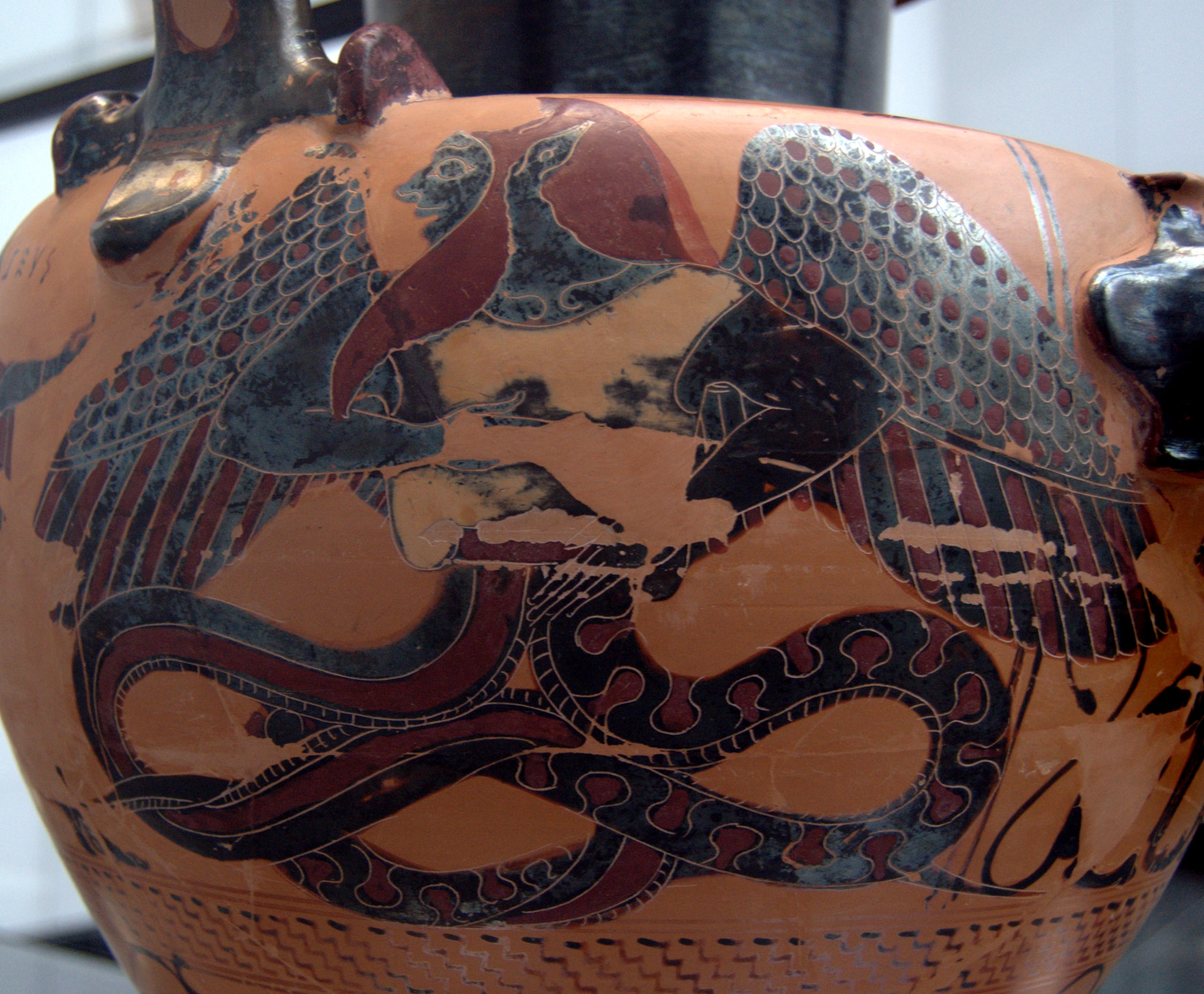
The most infamous dragon was Typhon, who was said to be the offspring of Gaia and Tartarus. Typhon raged war against Zeus and the other gods (Olympians) at the bequest of his mother Gaia, who was not pleased with the overthrow of the Titans and the defeat of the Giants. Typhon almost won the battle with the gods, nearly defeating Zeus himself, who was saved by Hermes. Zeus cast Mount Etna upon Typhon, forcing him down into the bowels of the Earth.
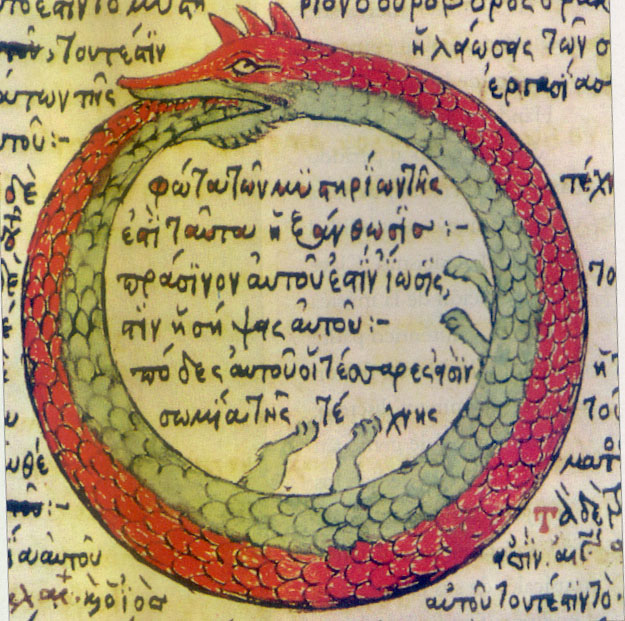
More often than not, the dragon has represented the dark forces of evil, as seen in the Garden of Eden, the ending of the beginning or Genesis – on into Revelations, the beginning of the ending. As such, the dragon as the Ouroboros – the Serpent swallowing its own tail is most telling, as it is slaying itself – much the same as life slays death and death slays life: the Alpha and Omega. And then there is Uther Pendragon and the Knights of the round table – a most sterling cast of characters whose favorite pastimes were not quite as noble as their title implies.
Draco is the dragon constellation between Ursa Major and Ursa Minor, made up of fifteen stars.
"And the great dragon was cast out, that old serpent, called the Devil, and Satan"
But to believe in dragons is thought by most to be the same as believing in fairy tales, which makes but little cents. There is no denying, however, the existence of the Order Draconis – The Dragon Order.
"Furthermore, the royal and ambassadorial nature of the title of the Prince of Drakenberg (Princeps Draconis) is recognized under the 'Official Observations' of the Department of Internal Affairs of the Government of its state of origin within the European Union." [The Imperial and Royal Dragon Court and Order]
"As defined within the main body of the following text, the Imperial and Royal Dragon Court represented herein, legitimately recognized as the Sovereign Court of The Sovereign Dragon Nation by the relevant and appropriate Government of a European Member State, is a closed fraternity of individuals, representing those who trace their ancestry and affiliations back to the ancient Grail and Dragon families." [as above]
It seems that some take the idea quite seriously, not only those directly involved within, but even the government of England recognizes the royal and ambassadorial nature of the Order Draconis and its lineage up to the present day. And who is the present Pendragon – Cui Bono?
WAR & PENCE
War is a terrible and wanting thing, an insatiable creature of the abyss, under the watchful eye of Ares, consorting with the likes of Phobus, Deimos, Eris, and other chords of discord. Yet war is a profitable undertaking for some – the merchants of death and destruction. Death is an expensive commodity; and destruction requires rebuilding, both providing pence to those so inclined to take the advantage. But nothing is free, and such ill-gotten profit has a most expensive toll when wrought with discord as opposed to harmony. See the Finance of War in Honest Money, Part VI: The European Connection.
"Discord strides exulting in her torn mantle,
followed by Bellona wielding a bloodstained scourge."
[Virgil, Aeneid]
480 BC The coin placed between the teeth of the dead prior to burial,
the cost of the ferry to cross to the other side.
THE GROUND OF PENCE
Jerusalem is home to the Temple Mount, perhaps the most expensive piece of real estate in the world – the price as of yet unknown. It includes the sacred ground upon which the First and Second Temples were built, as well as the supposed third to come, during the time of the final coming of the Messiah. The Islamic Dome of the Rock and the Al-Aqsa Mosque share the same ground as does the Church of the Holy Sepulchre.
The Temple Mount is deemed Sacred Ground to all three of the worlds monotheistic religions, and is the top contender as the most coveted piece of real estate on Earth. Coincidentally, the world's three monotheistic religions are descended from the same blood lines. Since 1004 BC, when David conquered the land from the Jebusites, and made Jerusalem the capital of Israel, the "sacred" ground has been a hot spot of contention.
Why is this particular ground so coveted, is there a rhyme or reason? The word sacred is derived from the verb sacren "to make holy"; from Fr. Sacrer; and from L. sacrare "to make sacred, to consecrate." To make holy invokes divinity. Would Christ turn the other cheek to forsake the ground, or would he advocate ceaseless and senseless killing – all for some dirt and rocks? Christ forgave those who nailed him to a cross and crucified him, "for they know not what they do", yet such righteousness is honored by fighting and killing over a piece of "sacred" ground..?
Are there any other possible reasons why the Temple Mount is deemed to be so valuable? Could the stories and legends of treasure buried in Solomon's Temple be a cause, or would the Knights of the Temple have already found such out – and cleaned it out?
Is there anything else of more value than hordes of gold and silver and precious jewels? Some mention relics and artifacts such as the lance, cross, shroud, tales exist of the holy grail – the ark of the covenant, and so on.
Does such exist, and if it does is it located at the Temple Mount? We will probably never know the answers for sure, at least not in the immediate future, however, perhaps there is something even more valuable – for those who attach importance to such desires as the possession of the Sacred Ground.
There is no question that the ground is the sacred site to all three of the world's monotheistic religions. There is little doubt that all three religions are from the same bloodline or line of descent. There is no doubt that control of any one of the main religions of man is of immense influence and power, let alone the possible control (or destruction) of all three.
Perhaps such power and control is what is deemed to be so valuable? If one were to control all three of the world's main religions, would they not control the world? Are there those that desire control of the world? Unfortunately the answer is a resounding – yes. The history of the ages has seen the pursuit of world conquest by many different individuals and groups, from Ghengis Khan, to Cecil Rhodes, to Adam Weisphaut, to Adolf Hitler – to name but a few.
Religion involves certain ideas and ideals, certain beliefs and belief structures, and faith or trust in these systems. Plato wrote about the importance of ideas, others have written about the collective unconscious, and archetypes of basic primordial thought or consciousness (not that they are one and the same, nor that they have revealed or explained all of man's being).
Some of these concepts may be wound tight within myth and legend, although in a somewhat different light then is usually expressed. Due to the place that religion holds for most of mankind, perhaps the throne it rests upon is of significant value from a psychic, mental, and emotional point of view, which in turn gives credence to the inherent value of the physical exteriorization and place of grounding that represents such manifestation: i.e. the Temple Mount – the sacred ground upon which the future and final Messiah is said to be destined to be crowned.
Even if not true, if most of mankind believes such to be true, enpowerment takes place and is of value until exposed to the light of truth – much in the same way as the revelation of false prophets. As has been said, tell a big enough lie enough of times and soon it is accepted as the truth. Either way suggests reasons as to why Jerusalem is such an expensive piece of real estate.
As of today, the middle east is unfortunately ground zero. It appears that the would be rulers of the universe desire the possession of the Temple Mount to be their throne, as control and power will be more easily and readily effected from such "sacred" ground. Perhaps, perhaps not – it is for each an every individual to decide for themselves.
But why the plethora of new age books and other forms of communication that express importance to such ideas as "Holy Blood, Holy Grail", or "The DaVinci Code", and the "New World Order"? All such ideas are based on bloodlines of descent – of divine descent, the age old argument of investiture, the right to rule. Maybe dragons really do exist. Maybe not.
But our thoughts they were palsied and sere
Our memories were treacherous and sere
For we knew not the month was October,
And we marked not the night of the year
Ah, night of all nights in the year!
We noted not the dim lake of Auber
Though once we had journeyed down here
We remembered not the dank tarn of Auber,
Nor the ghoul-haunted woodland of Weir.
[Edgar Allen Poe]
"It was night when I reached the porch of Adrastus."
[Euripides, Phoenician Women 415]
Part IX to be forthcoming.
![]()
© 2005 Douglas V. Gnazzo
![]()
![]()
![]()
Disclaimer:
Some material presented will contain links, quotes, ideologies, etc., the contents of which should be understood to first, in their whole, reflect the views or opinions of their editors, and second, are used in my personal research as "fair use" sources only, and not espousement one way or the other. Researching for 'truth' leads one all over the place...a piece here, a piece there. As a researcher, I hunt, gather and disassemble resources, trying to put all the pieces into a coherent and logical whole. I encourage you to do the same. And please remember, these pages are only my effort to collect all the pieces I can find and see if they properly fit into the 'reality aggregate'.
Personal Position:
I've come to realize that 'truth' boils down to what we 'believe' the facts we've gathered point to. We only 'know' what we've 'experienced' firsthand. Everything else - what we read, what we watch, what we hear - is what someone else's gathered facts point to and 'they' 'believe' is 'truth', so that 'truth' seems to change in direct proportion to newly gathered facts divided by applied plausibility. Though I believe there is 'truth', until someone representing the celestial realm visibly appears and presents the heavenly records of Facts And Lies In The Order They Happened, I can't know for sure exactly what "the whole truth' on any given subject is, and what applies to me applies to everyone. Until then I'll continue to ask, "what does The Urantia Book say on the subject?"
~Gail Bird Allen
![]()
![]()














-
Urantia Book, 44:0.11 - The Celestial Artisans
Never in your long ascendancy will you lose the power to recognize your associates of former existences. Always, as you ascend inward in the scale of life, will you retain the ability to recognize and fraternize with the fellow beings of your previous and lower levels of experience. Each new translation or resurrection will add one more group of spirit beings to your vision range without in the least depriving you of the ability to recognize your friends and fellows of former estates.
-
Princess Bride 1987 Wallace Shawn (Vizzini) and Mandy Patinkin (Inigo Montoya)
Vizzini: HE DIDN'T FALL? INCONCEIVABLE.
Inigo Montoya: You keep using that word. I do not think it means what you think it means. -
Urantia Book, 117:4.14 - The Finite God
And here is mystery: The more closely man approaches God through love, the greater the reality -- actuality -- of that man. The more man withdraws from God, the more nearly he approaches nonreality -- cessation of existence. When man consecrates his will to the doing of the Father's will, when man gives God all that he has, then does God make that man more than he is.
-
Urantia Book, 167:7.4 - The Talk About Angels
"And do you not remember that I said to you once before that, if you had your spiritual eyes anointed, you would then see the heavens opened and behold the angels of God ascending and descending? It is by the ministry of the angels that one world may be kept in touch with other worlds, for have I not repeatedly told you that I have other sheep not of this fold?"
-
Urantia Book, Foreword - 0:12.12 - The Trinities
But we know that there dwells within the human mind a fragment of God, and that there sojourns with the human soul the Spirit of Truth; and we further know that these spirit forces conspire to enable material man to grasp the reality of spiritual values and to comprehend the philosophy of universe meanings. But even more certainly we know that these spirits of the Divine Presence are able to assist man in the spiritual appropriation of all truth contributory to the enhancement of the ever-progressing reality of personal religious experience—God-consciousness.
-
Urantia Book, 1:4.3 - The Mystery Of God
When you are through down here, when your course has been run in temporary form on earth, when your trial trip in the flesh is finished, when the dust that composes the mortal tabernacle "returns to the earth whence it came"; then, it is revealed, the indwelling "Spirit shall return to God who gave it." There sojourns within each moral being of this planet a fragment of God, a part and parcel of divinity. It is not yet yours by right of possession, but it is designedly intended to be one with you if you survive the mortal existence.
-
Urantia Book, 1:4.1 - The Mystery Of God
And the greatest of all the unfathomable mysteries of God is the phenomenon of the divine indwelling of mortal minds. The manner in which the Universal Father sojourns with the creatures of time is the most profound of all universe mysteries; the divine presence in the mind of man is the mystery of mysteries.
-
Urantia Book, 1:4.6 - The Mystery Of God
To every spirit being and to every mortal creature in every sphere and on every world of the universe of universes, the Universal Father reveals all of his gracious and divine self that can be discerned or comprehended by such spirit beings and by such mortal creatures. God is no respecter of persons, either spiritual or material. The divine presence which any child of the universe enjoys at any given moment is limited only by the capacity of such a creature to receive and to discern the spirit actualities of the supermaterial world.
-
Urantia Book, 11:0.1 - The Eternal Isle Of Paradise
Paradise is the eternal center of the universe of universes and the abiding place of the Universal Father, the Eternal Son, the Infinite Spirit, and their divine co-ordinates and associates. This central Isle is the most gigantic organized body of cosmic reality in all the master universe. Paradise is a material sphere as well as a spiritual abode. All of the intelligent creation of the Universal Father is domiciled on material abodes; hence must the absolute controlling center also be material, literal. And again it should be reiterated that spirit things and spiritual beings are real.
-
Urantia Book, 50:6.4 - Planetary Culture
Culture presupposes quality of mind; culture cannot be enhanced unless mind is elevated. Superior intellect will seek a noble culture and find some way to attain such a goal. Inferior minds will spurn the highest culture even when presented to them ready-made.
-
Urantia Book, 54:1.6 - True And False Liberty
True liberty is the associate of genuine self-respect; false liberty is the consort of self-admiration. True liberty is the fruit of self-control; false liberty, the assumption of self-assertion. Self-control leads to altruistic service; self-admiration tends towards the exploitation of others for the selfish aggrandizement of such a mistaken individual as is willing to sacrifice righteous attainment for the sake of possessing unjust power over his fellow beings.
-
Urantia Book, 54:1.9 - True And False Liberty
How dare the self-willed creature encroach upon the rights of his fellows in the name of personal liberty when the Supreme Rulers of the universe stand back in merciful respect for these prerogatives of will and potentials of personality! No being, in the exercise of his supposed personal liberty, has a right to deprive any other being of those privileges of existence conferred by the Creators and duly respected by all their loyal associates, subordinates, and subjects.
-
Urantia Book, 54:1.8 - True And False Liberty
There is no error greater than that species of self-deception which leads intelligent beings to crave the exercise of power over other beings for the purpose of depriving these persons of their natural liberties. The golden rule of human fairness cries out against all such fraud, unfairness, selfishness, and unrighteousness.

